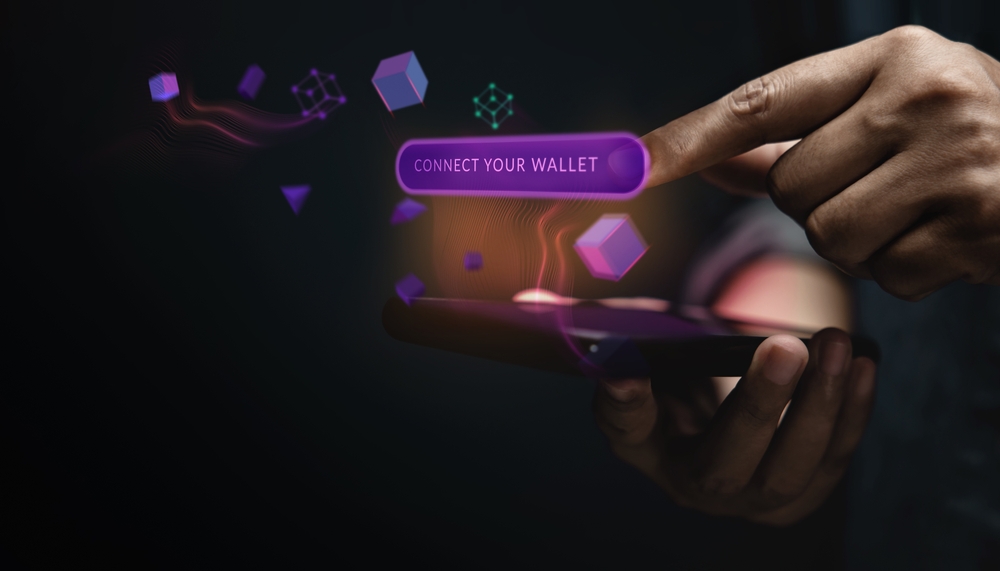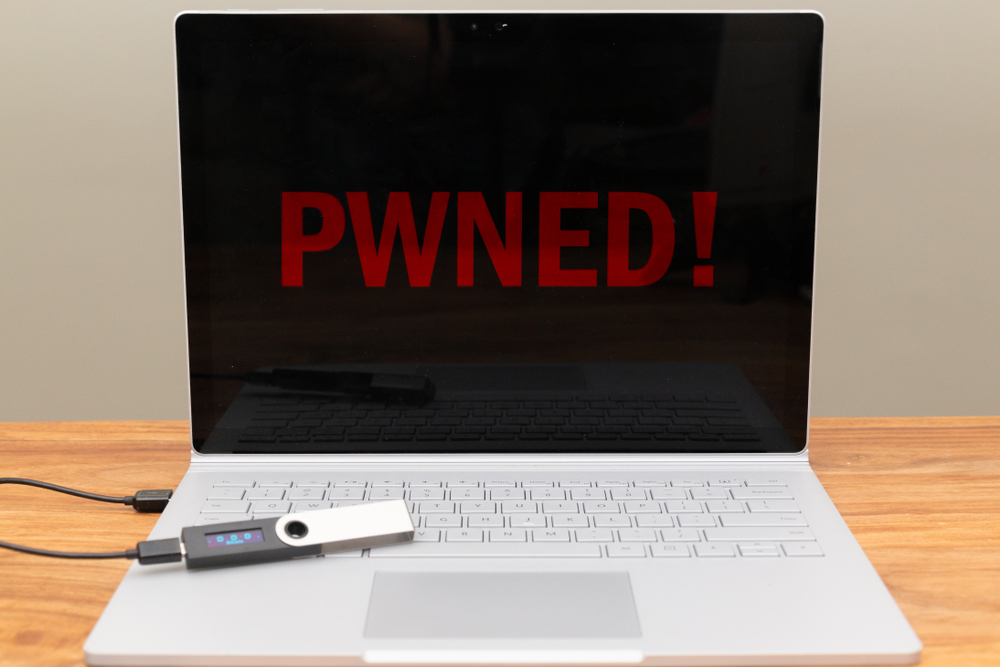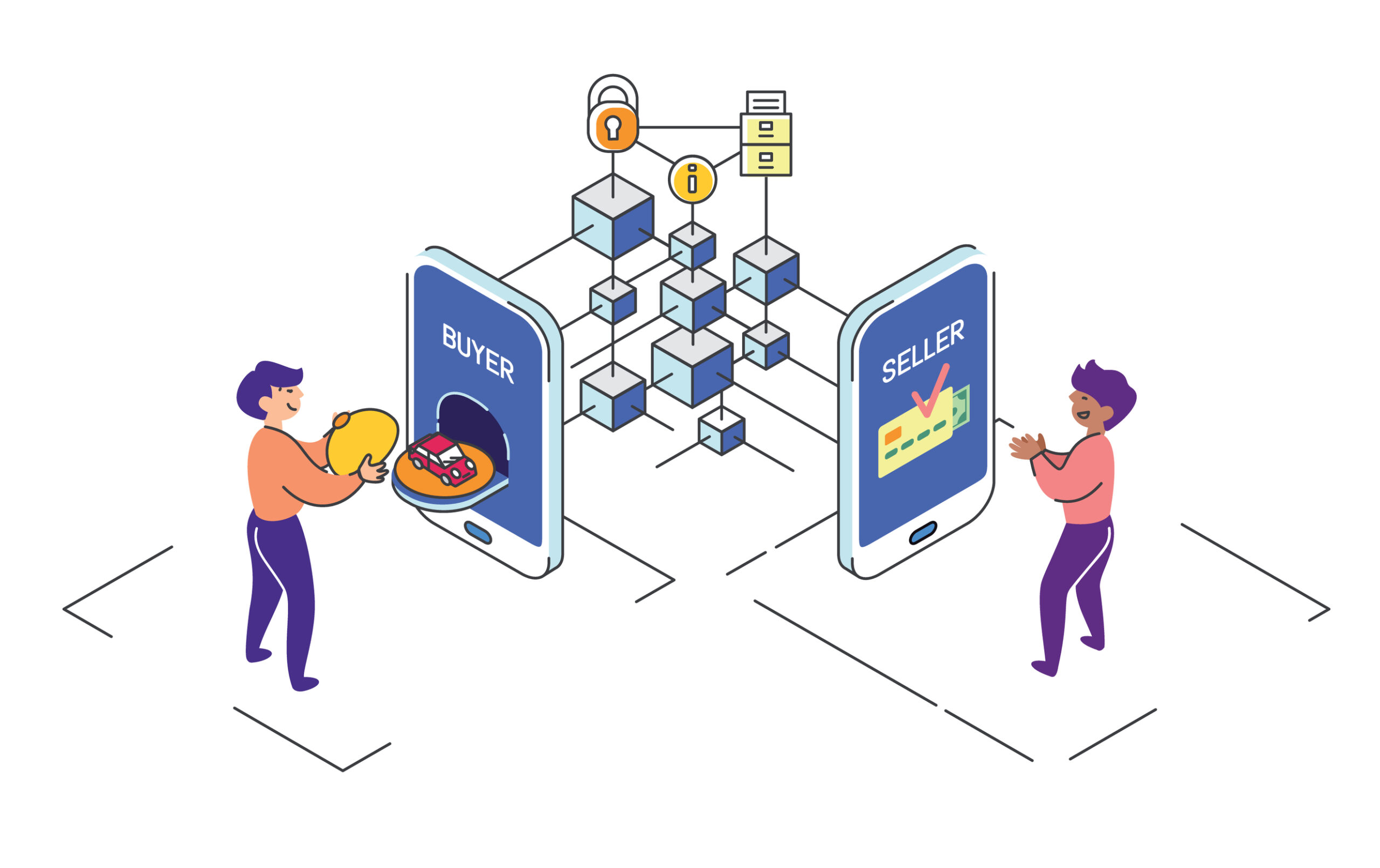Account Abstraction: Easier, Smarter Crypto Wallets

Managing a crypto wallet shouldn’t feel like cracking a safe every time you need to access your funds or make a transaction. Yet, that’s exactly how it feels for many people—confusing, stressful, and packed with ways to mess up. Remembering complex seed phrases, risking permanent loss with a slip of the finger, or navigating clunky interfaces that look like they belong in the early 2000s has held crypto back from being something everyone can use. But imagine a wallet that’s as easy as using your phone, as intuitive as your favorite app, and smart enough to take care of the stressful stuff for you—that’s exactly the future account abstraction is building.
Why traditional wallets are holding people back

Let’s face it: traditional crypto wallets are no walk in the park. If you’ve ever set one up, you know how intimidating and unnecessarily complex the process can be. Keeping track of those cryptic 12 or 24-word seed phrases is a headache. Lose them and, boom—your funds are gone. And that’s not even the worst part; the anxiety of accidentally sending funds to the wrong address or getting hacked makes even the most seasoned crypto users sweat bullets.
Traditional wallets place a massive responsibility on users. It’s no surprise that many newbies feel overwhelmed and either give up or turn to centralized solutions. While centralization may feel easier, it’s not why the crypto movement began. We’re all here for control, independence, and security, aren’t we?
The shortcomings of private key dependence
At the core of these traditional wallets is the private key system. It’s brilliant for security, sure, but it’s also a ticking time bomb. One mistake—like losing your key or accidentally revealing it to a scammer—and your funds are history. There’s no insurance or “forgot password” button to save the day. This heavy dependence on private keys is one of the major reasons why crypto adoption is still out of reach for many.
The headaches of clunky design and usability
Now, let’s talk about how outdated most wallet interfaces feel. Too often, you’re navigating through technical jargon, cryptic addresses, and options that feel, let’s just say, “engineered.” Where’s the simplicity? Where’s the polish? Compare this to modern apps like PayPal or Venmo, where everything feels effortless. That’s the bar for user experience these days—and crypto wallets have a long way to go.
The promise of account abstraction

Here’s where account abstraction swoops in to save the day. Think of it as the secret sauce that makes crypto wallets as sleek, smart, and intuitive as today’s best apps, while still staying secure. It fundamentally rethinks how wallets work, putting the focus on usability, automation, and accessibility. The goal? To give you a wallet experience that doesn’t make you feel like you need a master’s degree in blockchain to use it.
A smarter way to secure your crypto
Imagine a world where your wallet doesn’t rely entirely on a private key to keep things safe. Instead, it could integrate advanced protections like biometrics (think Face ID), multi-signature setups, or social recovery options that let trusted friends or family help you regain access to your account. That sounds a whole lot better than staring at a seed phrase and praying you never lose it, right?
Doing more with less effort
Automation is a game-changer. With account abstraction, your wallet could handle recurring payments, smart transactions, or complex multi-step processes—all without you having to lift a finger. It’s like having a personal assistant for your crypto. Did you know some wallets are already letting users program these features, creating custom rules like “only allow transactions under $50 without my approval”? Pretty cool stuff!
Why this matters for you
So, why should you care about all of this? Well, crypto adoption has always been about getting more people involved—people who aren’t necessarily tech-savvy or hardcore blockchain enthusiasts. A better, smarter wallet makes crypto less intimidating and far more accessible to the average person. Imagine sharing this technology with your parents or friends and having them actually enjoy the experience rather than feeling overwhelmed.
Still wondering what exactly account abstraction is and how it works? Don’t worry—I’ve got you covered in the next part of this article, where we’ll take a closer look at what’s powering this technology and why it’s changing wallets for good. Ready to see what’s under the hood?
What is account abstraction?

Let’s make this simple—account abstraction is all about flexibility. It’s not some complicated tech term you need an advanced degree to understand. At its core, it’s about moving beyond rigid ways of managing crypto wallets and opening up new possibilities. Think of it as upgrading your wallet from a flip phone to a smartphone. Suddenly, the potential is endless, without adding unnecessary hassle.
Moving beyond private keys
If you’ve ever worried about losing your private key and locking yourself out of your wallet forever, you’re not alone. It’s one of the biggest fears keeping people skeptical about crypto. Traditional wallets give you one shot to get it right—a single private key controls everything. Lose it, and you might as well say goodbye to your funds.
So, what’s the game-changer here? With account abstraction, wallets aren’t chained to private keys anymore. They become programmable. For example, you could set up options like social recovery features, which allow you to regain access by involving trusted contacts. Or maybe you prefer multi-factor authentication—something widely used in everyday tech, like requiring both a password and fingerprint for added security. Suddenly, losing your private key isn’t a nightmare scenario. It’s just a hiccup.
Programmable wallets? Yes, please
This is where things start to get really exciting. Imagine your wallet being capable of doing things for you—automatically. That’s what programmable wallets, powered by account abstraction, can offer.
Let’s say you’re someone who occasionally forgets to send recurring payments or hates manually signing every single transaction. With this new tech, your wallet can handle these tasks for you. Want it to pay your monthly NFT storage fees every first of the month? Done. Need it to secure your assets with layers of smart contract logic? Easy.
The process becomes streamlined, secure, and, dare I say, fun? After all, handling finances without the stress of constant oversight frees you up to focus on what truly matters.
A quote I recently came across really stuck with me:
“Technology is best when it serves us without overwhelming us.”
That’s exactly what’s happening here—your wallet does the heavy lifting so you don’t have to.
Why it matters to regular users
For those who aren’t living and breathing crypto 24/7, this change is a big deal. The biggest roadblock for new users? Managing crypto just feels overwhelming—like it’s designed only for the tech elite. Why should it be that way?
Account abstraction flips this perception on its head. It’s designed to make wallets smarter and user-friendly enough that even your least tech-savvy friend could manage one. Enhanced usability means people can finally interact with crypto confidently without stumbling over complex processes. It’s a win for everyone—from hardcore enthusiasts to first-timers hesitant to take the leap.
But here’s a question: What if the struggles you think are inherent in crypto weren’t even necessary in the first place?
Stick around—I’ll be digging into the frustrations plaguing traditional wallets next and why so many people are holding back from embracing the crypto world. Spoiler alert: account abstraction might just be the answer. Ready to uncover the truth?
Common Crypto Wallet Complaints

Let’s face it—crypto wallets can be a major turn-off for a lot of people, and it’s not hard to see why. Even seasoned users get frustrated sometimes. For beginners? It can feel like stepping into a maze with no map. Here’s what really holds us all back from fully enjoying this technology.
Security Concerns Are Real
Imagine this scenario: you’ve just transferred funds to your shiny new wallet, only to hear about yet another hack where users lost everything. It’s terrifying, right? Sadly, this isn’t just paranoia—it’s a genuine risk with many wallets out there, especially hot wallets. Studies show that over $3.8 billion was lost to crypto hacks in 2022 alone. Numbers like that make anyone hesitate.
Hot wallets are particularly vulnerable since they’re connected to the internet. For regular people, the idea of keeping their funds at constant risk feels like walking a financial tightrope. No one wants to gamble with their hard-earned assets.
Usability Struggles for Non-Techies
If you’ve ever tried explaining seed phrases or private keys to someone new to cryptocurrency, you’ll know the glazed-over look they give you. Let’s be honest—current wallets aren’t designed with user-friendliness in mind.
Here’s a hard truth: not everyone loves messing with technical jargon or interfaces that look like they’re built for developers. For some, just setting up a wallet feels like solving a puzzle with missing pieces. This steep learning curve keeps many people on the sidelines, wondering if crypto is really worth all the trouble.
Lost Keys, Lost Funds
Let me throw another fear your way—imagine losing access to your entire wallet because you misplaced one piece of information: a private key or seed phrase. Yikes.
This “one strike and you’re out” system has scared off countless would-be crypto users. According to Glassnode, millions of Bitcoin are lost forever, in many cases due to people losing private keys. With stories like this making the rounds, it’s no wonder folks opt for centralized services even though they want the freedom decentralization offers.
“Lose your keys, lose your coins” doesn’t just sound harsh—it’s the reality for anyone relying on traditional wallet designs.
So, are we stuck with outdated systems that frustrate and scare us? Of course not. Here’s the exciting part—you’re about to find out how all these headaches are being solved in groundbreaking ways. But how does this magic happen? Keep reading to see what’s coming next.
How Account Abstraction Solves These Problems

Let’s be real—traditional crypto wallets have been a headache for too long. Lost keys, confusing interfaces, and constant worries about security aren’t exactly a selling point for most people. But here’s the exciting part—account abstraction flips the script and makes wallets smarter, easier, and, most importantly, safer. Here’s how it changes everything for the better:
Advanced Recovery Options
How many times have we heard the horror story of someone losing all their crypto because they misplaced a private key? It’s brutal. With account abstraction, this doesn’t have to be your story.
- No more single points of failure: Forget relying solely on one fragile seed phrase. Account abstraction can support keyless recovery options or even enable social recovery, where trusted contacts help you regain access to your wallet.
- Backup keys, reimagined: Want an added layer of safety? Wallets can include multi-signature setups, so even if one key is compromised, your funds are still protected.
As Moxie Marlinspike said, “The reality of most blockchain systems today is that they’re not resilient to human mistakes.” Account abstraction fixes that and makes managing wallets feel almost…unbreakable.
Smarter Transactions with Automation
Ever forgotten to make a payment or stressed over the manual process of sending funds? It’s the kind of thing that puts people off. But account abstraction levels things up with automation that feels almost magical:
- Recurring payments made simple: Want to set up regular payments, like subscriptions or donations? Wallets powered by account abstraction handle this seamlessly, so you don’t have to lift a finger.
- Pre-set rules for transactions: You can define how specific transactions work. Think about adding spending limits for certain addresses or requiring multiple levels of approval for important transfers—features that provide peace of mind every time you use your funds.
This isn’t just convenience—it’s control. Automating repetitive stuff gives you more time to focus on what matters most, without overthinking basic wallet tasks.
Accessibility for Everyone
You shouldn’t have to be a blockchain guru to use a crypto wallet, and account abstraction makes sure of that. It’s reshaping the experience to feel more like using an intuitive app rather than navigating through a puzzle.
- Goodbye, complicated interfaces: Wallets with account abstraction take cues from modern banking apps, meaning everything is simpler, cleaner, and more user-friendly.
- Mainstream-ready: Whether you’re new to crypto or a seasoned trader, these wallets are approachable for all skill levels. It’s time to say goodbye to the intimidating learning curve that’s kept so many people away.
Imagine a world where crypto is for everyone, not just the tech-savvy elite. With this shift, we’re a step closer to making crypto tools mainstream—where your Grandma could grab a wallet and feel at home.
So here’s the big question—if account abstraction makes wallets smarter, safer, and way easier to use, which ones should you check out first? Don’t miss what’s coming next, because I’ve got just the list you’ve been waiting for! Let’s see which wallets are already leading the charge with this game-changing technology.
Popular Account Abstraction Wallets Right Now

It’s one thing to hear about how account abstraction can revolutionize crypto wallets, but it’s a whole other thing to see it in action. Let’s check out some of the standout wallets already leveraging this tech—and why they’re worth paying attention to.
Some Big Names to Watch
When we talk about crypto wallets shaking up the game, StarkNet and Safe (formerly Gnosis Safe) deserve a mention. These wallets are blazing the trail by creating systems that don’t just hold your assets—they rethink how you manage them entirely. From programmable features to enhanced recovery options, they are setting the benchmark for what smart wallets should be.
StarkNet: This wallet leans on scalability and efficiency. It integrates with StarkWare’s zero-knowledge rollup technology to offer lightning-fast transactions while handling the complexities of account abstraction under the hood. It’s smart, it’s sleek, and it’s designed to simplify things without compromising security.
Safe (formerly known as Gnosis Safe): A crowd favorite among power users and newcomers alike, Safe offers multi-signature functionality, making it perfect for anyone who needs extra layers of security. It also supports programmable elements, meaning you can automate transactions, set spending limits, or even create recovery paths right in the app. And honestly, who doesn’t love that peace of mind?
Bonus: Programmable Experiences
Here’s where it gets really exciting. These wallets are not just ‘storage spaces’ anymore—they’re evolving into tools that allow full-on programmable experiences. With account abstraction, these wallets can run smart contract logic within themselves. Need a recurring payment setup? Done. Want an extra security check before sending big funds? It’s built in.
A great example is personalized spending limits or approvals. Imagine your wallet proactively stopping a suspicious transaction by requiring further verification. It’s a step beyond just holding funds; it’s actively protecting and working for you.
“If there is one thing users desire more than ease, it’s trust. These wallets give you both.”
Real-world benefits of abstract wallets

Let’s imagine this for a second: managing your crypto wallet without stress, typing, or confusion—a world where handling your digital assets feels as easy as scrolling through your phone. Sounds pretty great, right? That’s the magic of abstract wallets. By transforming the way we interact with our crypto, they’re designed to make everyday use simpler, smarter, and safer. But how exactly does that play out in the real world? Let me show you.
Swiping instead of coding
Think about this: what if approving a transaction required nothing more than a swipe? No more juggling private keys, no more feeling like you need a coding background. Abstract wallets move the heavy lifting into the background, letting automation do most of the work. For example, with certain smart wallets already out there, approving payments or setting up recurring transfers can now feel as effortless as approving an app notification.
Let’s take Safe (formerly Gnosis Safe) as an example. Instead of painstakingly signing each action manually, you can program rules within the wallet itself, allowing tasks to execute automatically once your parameters are met. It’s all about reducing friction so you can focus on what matters—whether it’s investing, trading, or just enjoying the convenience of crypto without the stress.
“Technology should adapt to humans, not the other way around.” – Imagine this philosophy guiding your wallet experience.
Safer funds, smarter features
Now here’s another big deal: security that doesn’t drive you crazy. Abstract wallets come built with multi-layered protections, incorporating features like biometrics, social recovery, and multi-signature setups. These wallets aren’t just focusing on securing your funds, they’re also securing peace of mind.
For example, some wallets now let you assign trusted contacts (think close friends or family) to help recover your account if you find yourself locked out. This is especially reassuring given how many people have lost access to funds in the past. The days of “lose your private key, lose your money” could be over sooner than you think.
And it doesn’t stop there—smart contract functionality lets you make the rules. You want to cap how much can be spent in a day? You can do that. Want to restrict certain transactions unless they’re approved by multiple devices or people? That’s an option too. Just imagine a wallet proactively working for you, not against you!
At this point, it’s becoming clear: abstract wallets aren’t just another crypto trend. They’re opening the door to a user-friendly, reliable future that feels closer than ever. But here’s a thought—if the benefits are this compelling, why haven’t all wallets adopted this innovation already? What’s holding back the widespread adoption, and what might we see change in the near future?
Will more wallets adopt account abstraction?

Account abstraction isn’t just a cool feature for the future—it’s already changing the game. With big players like Ethereum setting the stage, it’s clear this technology isn’t a passing trend. But will we see widespread adoption? Let’s unpack why it’s practically inevitable.
Support from networks like Ethereum
Here’s the deal: Ethereum, the king of smart contracts, has given a massive thumbs up to account abstraction. How? Through ERC-4337, a standard designed to supercharge wallets with next-level features like programmable functionality and automation. When the backbone of blockchain technology like Ethereum incorporates something into its ecosystem, you know it’s serious business.
This isn’t just theoretical talk either. Wallets aligned with ERC-4337 are already rolling out capabilities like social recovery, one-tap transactions, and built-in safety nets. That’s the kind of upgrade users need to finally leave behind clunky wallets that rely entirely on private keys. It’s no longer just about holding crypto; it’s about enabling smoother, smarter user experiences.
“Technology evolves when people demand it—and account abstraction is answering that call.”
With Ethereum laying the groundwork, other blockchains are starting to wake up and pay attention. Picture Solana, Polygon, or Avalanche jumping in to adopt similar features. The ripple effects would be massive, creating a unified push toward smarter wallets.
Growing need from mainstream users
Let’s get real—crypto won’t go mainstream if wallets remain confusing and risky. Right now, many people hesitate to even try crypto because they feel it’s just too complicated. Everyone’s seen the horror stories of lost keys, hacked funds, or people stuck googling “how to recover wallet.” That anxiety keeps adoption down.
But here’s the twist: account abstraction can solve these problems, making wallets seamless for everyone from your crypto-enthusiast coworker to your non-tech-savvy friend. Features like biometrics, social recovery, and recurring payments don’t just sound nice—users want them. It’s what the masses need to confidently step into crypto without worrying they’ll mess it all up on Day One.
- Stat to consider: A 2022 survey by Morning Consult found that 45% of U.S. adults believe crypto is confusing to use. This perception is a massive barrier, but abstraction-based wallets could flip the script entirely.
- Tech evolution: Mainstream demand isn’t subtle. Just think of how apps like Venmo or PayPal reshaped digital payments by making them ridiculously simple. Crypto wallets powered by abstraction are primed to do the same.
When user demand is on the rise, tech companies have to listen. And when the big players like Ethereum step in, the road ahead becomes much clearer. The question isn’t “if” this technology will take over—it’s “how soon.”
But what hurdles could slow this down? Is adoption as straightforward as it seems, or are there challenges lurking under the surface? Let’s see what lies ahead in this next exciting chapter…
What challenges remain?

Let’s take a moment to talk about the elephant in the room—why hasn’t every wallet out there already jumped on the account abstraction train? I mean, the benefits are crystal clear, right? But here’s the thing: while this tech is incredibly promising, getting it off the ground isn’t exactly a walk in the park. There’s some heavy lifting to do, and it’s important that users like you and me really understand the roadblocks before we can expect these wallets to completely revolutionize the crypto game.
Complexity in implementation
First off, building account abstraction wallets isn’t as straightforward as slapping a new logo on an old product. These wallets depend on intricate smart contracts and deep compatibility with blockchains like Ethereum. Crafting these contracts is no joke—it’s like designing the locks for a bank vault, where one glitch could mean a massive security loophole.
Take Ethereum’s ERC-4337 standard, for example. While it’s a game-changer in enabling account abstraction, not every wallet or developer is ready to work with it yet. For wallets to leverage this tech fully, they need to align with the standard while maintaining bulletproof security. Imagine trying to balance innovation with reliability—it’s a tough gig! This reality will require serious collaboration between developers, wallet providers, and blockchain networks.
Gaining user trust
Even the best technology can fall flat if people don’t trust it, and this is where abstract wallets face their next big hurdle: convincing users. Here’s the deal—crypto users, whether they’re newbies or seasoned pros, want assurance that their funds are safe. Traditional private key wallets have their flaws, sure, but at least people know what to expect from them. Now you’re asking these same folks to switch to a shiny new technology driven by smart contracts and automation? Yeah, that’s going to take a while.
Don’t forget, the crypto world has seen its fair share of hacks and losses. Some users might hesitate because they’ve been burned before, while others might feel overwhelmed by the newness of it all. Trust isn’t built overnight; it’s earned through proven track records and time-tested security. This is where companies like CoinMetro’s insights on account abstraction and wallet providers such as those listed in the top account abstraction wallet guides step in. Transparency and education are key to addressing user fears and skepticism.
The patience factor: Are users ready to wait?
Here’s another reality to chew on—not all users are ready to embrace the speed of change. Abstract wallets are bringing completely new features like automation and keyless login options, but learning curves still exist. It’s like asking someone who’s used to a flip phone to suddenly switch to the latest iPhone. Sure, the new features are awesome, but it takes time to get used to them.
So how do developers and wallet providers tackle these challenges? By keeping things simple and focusing on educating users. Wallet interfaces need to feel natural and intuitive, and users must feel empowered, not confused. If wallets can nail the “simple but powerful” vibe, trust me, adoption will follow.
That being said, do you think these limitations could slow down the adoption of abstract wallets? Or is this simply the price we pay for innovation? There’s an exciting future waiting just around the corner—stay tuned for what’s next in part, where we’ll explore the game-changing potential they unlock. Are we truly on the brink of reshaping how the world interacts with crypto? Let’s find out.
The future of crypto wallets is here

It’s hard not to get excited about where crypto wallets are headed. Account abstraction isn’t just some buzzword—it’s actively transforming how we store, manage, and interact with digital assets. This isn’t a far-off fantasy; it’s here now, changing the game. Let’s talk about why this matters and what it means for you.
Why it could change everything
Here’s the deal: traditional wallets are limited, stressful, and often keep people away from adopting crypto. Account abstraction fixes so many of the issues that made crypto feel inaccessible. Automation ensures tasks like setting up recurring payments are seamless, while features like multi-layered security tools or biometric access mean you don’t have to lose sleep over hacks or forgotten keys. All of this makes wallets smarter, stronger, and ridiculously more approachable.
Think of it this way—just as smartphones simplified how we handle almost every part of our lives, smarter wallets will do the same for crypto. You shouldn’t have to be a coder or blockchain guru to move your money safely. Picture someone’s grandma approving a transaction with a fingerprint tap or a click—it’s that kind of future.
Takeaways for your crypto journey
The world of non-custodial wallets is evolving at a rapid pace, and account abstraction is leading the charge. The good news? You don’t have to be an expert to benefit from this. If you’ve been hesitating to handle digital funds independently, now’s a perfect moment to explore what’s out there. Check the wallets we mentioned earlier in this article—they’re excellent starting points for anyone looking to upgrade their experience.
Here’s a hot tip: look at wallets that focus on simplicity but don’t compromise on security. Features like social recovery, automated options, or even programmable settings are already available. Experiment with smaller transactions to test these tools if you’re nervous. They’re specifically designed to handle the “what if I mess this up?” worries that many of us face. Spoiler: they’re harder to mess up than you think.
Stepping into the future safely
The shift to smarter, user-friendly wallets is happening not just because it’s cool technology, but because it’s necessary. The crypto industry can’t grow without addressing usability and trust. That’s where account abstraction comes in—it’s safe, efficient, and ready to make everyone’s life a little easier. As the tech improves and adoption grows, we’ll see fewer barriers to entry and more confidence from users, both new and experienced.
Are you ready to step into this new chapter of crypto wallets? If you’ve been waiting on the sidelines, there’s never been a better time to start. The tech is ready for you, not the other way around. And hey, no one ever said the future wouldn’t be fun, right?
